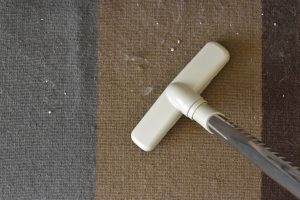Have you asked yourself "Is cat litter harmful to humans?" Find out the truth behind the concerns and discover how different types of cat litter can affect your health.
We'll get into the facts, addressing the topics of toxicity, lung cancer risks, and disease transmission. Read on to gain insights into cat litter safety and make informed decisions for you and your furry companion.
The Truth About Cat Litter And Human Health
You might be wondering if cat litter is harmful to humans. The answer to these questions is a bit complex, but we did the research and will reveal them in this article.
Overall, cat litter is not harmful to humans in the amounts we're exposed to at home. However, there are some aspects of cleaning a litter box that can be detrimental to your health.
Don’t let that news scare you, your feline friend can safely share your home for years to come. We’ve scoured the net and found out what separates a healthy litter box from a harmful litter box. Read on to get all the facts.
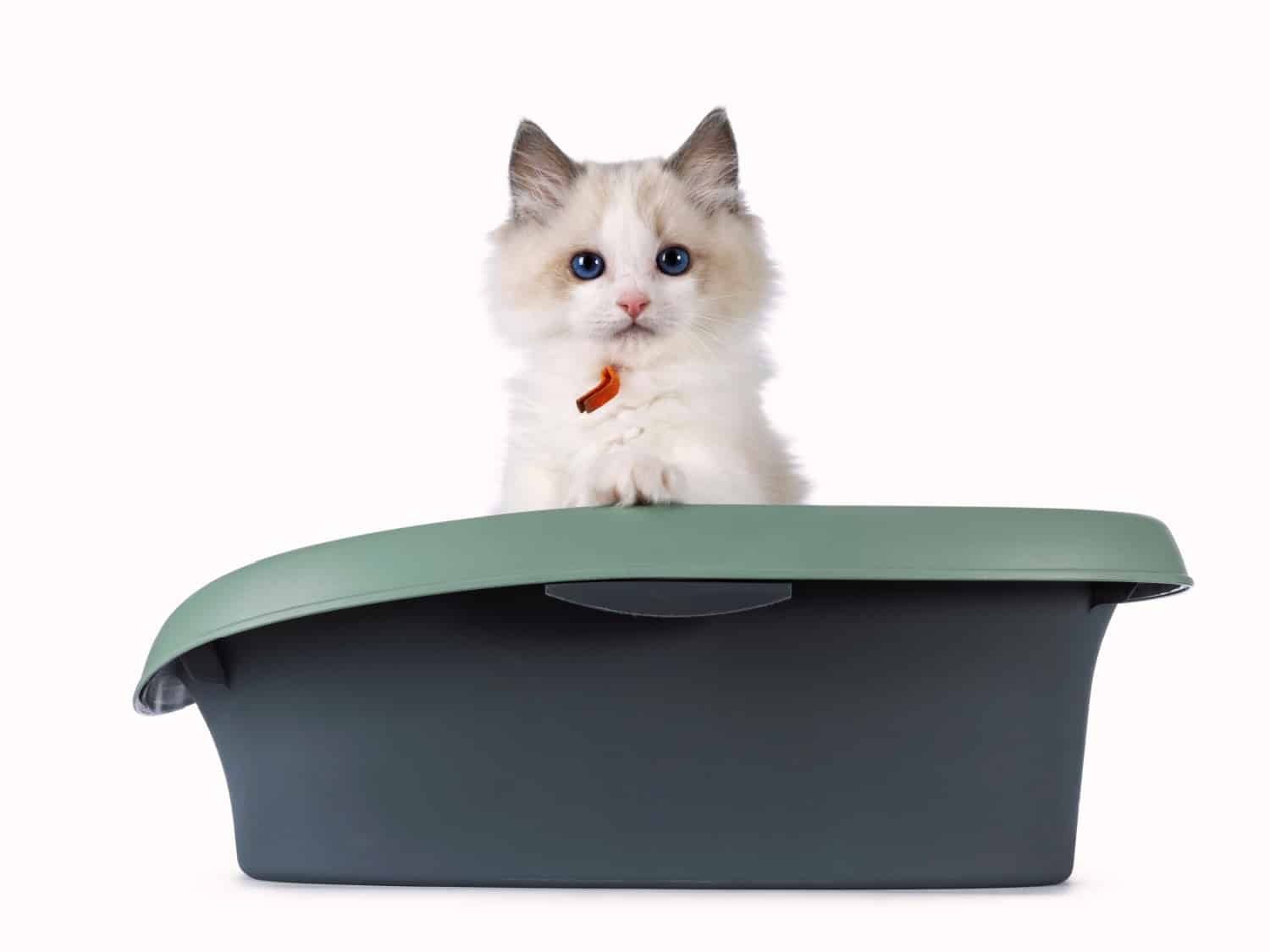
Is Cat Litter Toxic? Fact vs. Fiction
Cat ownership and litter boxes are twofold - you can't have one without the other. Although we know that cat litter is part of the package when owning a cat, along with cuddles, of course - it can still be cause for concern.
Breathing in the dust from your cat’s litter box is unpleasant, to say the least. There is a widely held belief among cat owners that this dust is actually quite harmful and could cause health complications including lung disease or even cancer.
When it comes to cats and their litter boxes, we want to help you separate speculation from the truth.
Different Types Of Cat Litter And How They Affect Your Health
Not all cat litter is equal. Just as your furry friends vary, from Siamese to Sphynx, there are a variety of cat litter formulas available.
We did our research, so you don't have to. Read on to learn about the different types of cat litter to help you decide which is the best for you and your health.
Clumping Litter
Clumping cat litter is a popular choice for many pet owners. Clean-up tends to be easier and less messy than non-clumping litter. And less cleaning time means more time with your cuddly kitten!
The Effect Of Clumping Litter On Your Health
Clumping litter is a natural substance, usually based on bentonite, the substance that allows the liquid to clump together. According to the CDC, it's best to avoid ingesting or inhaling this substance.
Clumping litter may also contain crystalline silicate dust which according to Wikipedia is considered a carcinogen by the State of California, or in other words, can cause cancer.
Exposure to silica by inhalation can increase the risk of lung cancer. However, many manufacturers who utilize silica in their cat litter use sodium silicate sand which is non-toxic for our feline friends.
Overall, experts agree that you should try to avoid inhaling - or ingesting - clumping litter. In fact, many shelters avoid using clumping litter, to avoid the risk of kittens ingesting it.
Having said that, cat owners have very limited exposure to litter. Don't try and deliberately take extra deep breaths when filling up the box with clumping litter. However, it's fine if your exposure is limited to cleaning the box 2-3 times a day.
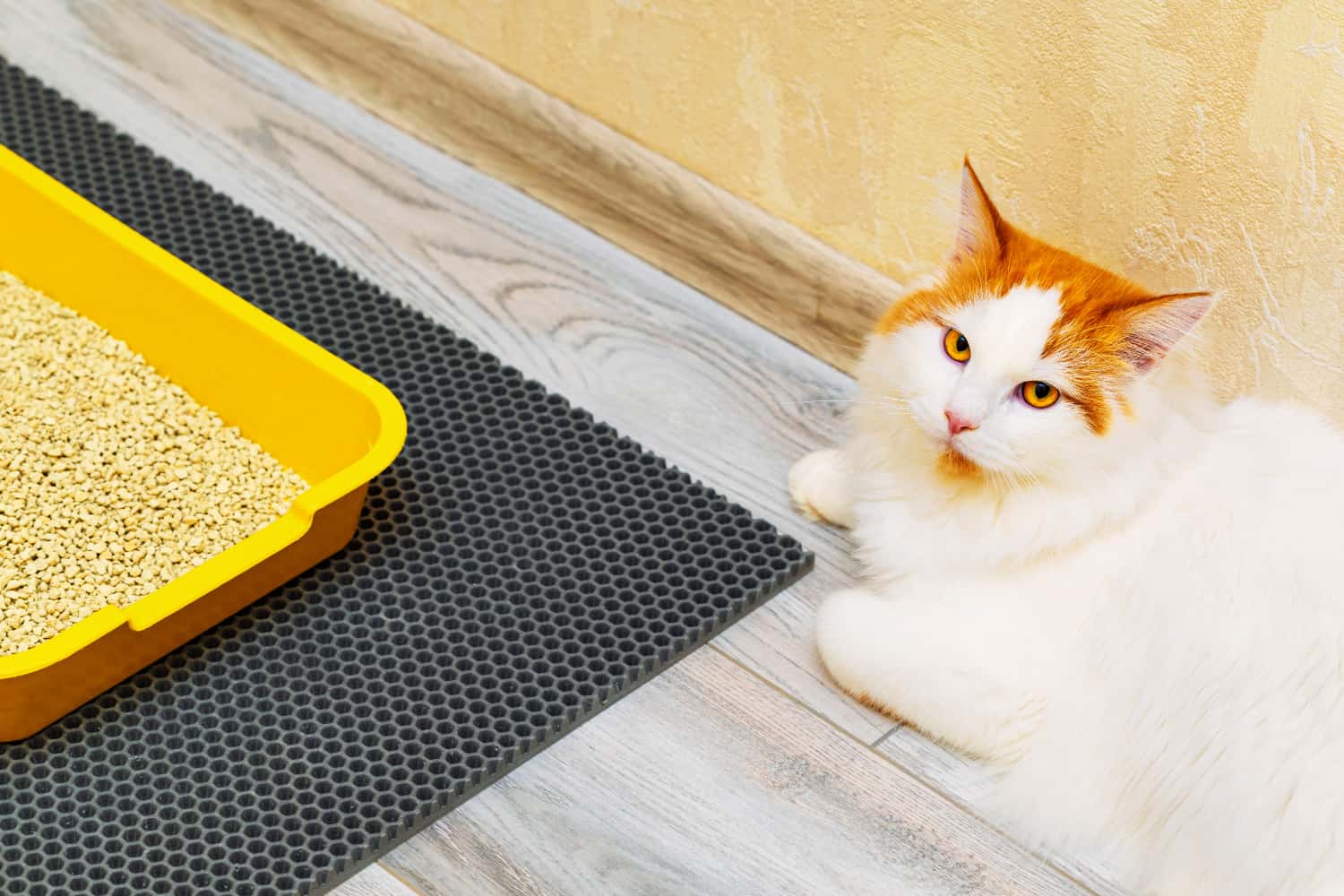
Non-Clumping Litter
Non-clumping litter box formulas are primarily clay-based. One of the perks of non-clumping litter is the ability to absorb lots of liquid - when compared to sand or regular dirt.
Historically, this was the first type of commercial cat litter - long before the clumping formula was developed.
This type of litter can be dusty and allow urine to sink to the bottom of the litter box. Because of the liquid pooling at the bottom of the litter box, it can be challenging to clean without emptying the contents in the trash.
The Effect Of Non-Clumping Litter On Your Health
Clay is a natural material but of course, that doesn't indicate much when it comes to safety issues. However, with clay also being less "powdery" than clumping litter, this seems to be a better choice for anyone concerned with health issues. You're simply less likely to inhale or ingest this type of litter.
Silica-Based "Crystal" Litter
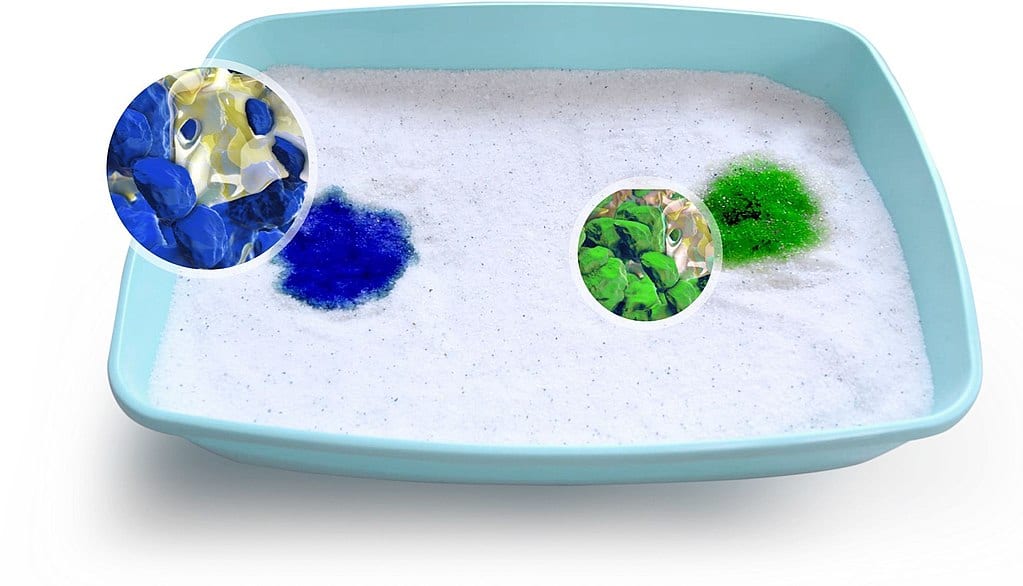
This type of litter is made of silicon dioxide in the form of small white granules. Silicon is highly absorbent, which means urine gets soaked in the granules, keeping the box cleaner for longer.
The Effect Of Crystal Litter On Your Health
According to the CDC, silicon dioxide can cause irritation to the eyes and lungs. However, cat owners - and the felines themselves - are only exposed to very small amounts of the substance, making it safe to use.
Plant-Based Biodegradable Litter
Some options are cat litter made from recycled paper, corn, wheat, and grains. So-called "natural" cat litter is basically litter that's processed from plant material.
Don't be fooled by the hype - clay, bentonite, and silica are all perfectly natural minerals. And either way, it's best to never assume anything is safe just because it's dubbed "natural".
The Effect Of Plant-Based Litter On Your Health
The effect depends on the type of plant used as well as additional substances added during the manufacturing process. Some plants can trigger allergies in certain individuals, so that's something to pay attention to.
Should People With Asthma Steer Clear Of Their Cat’s Litter Box?
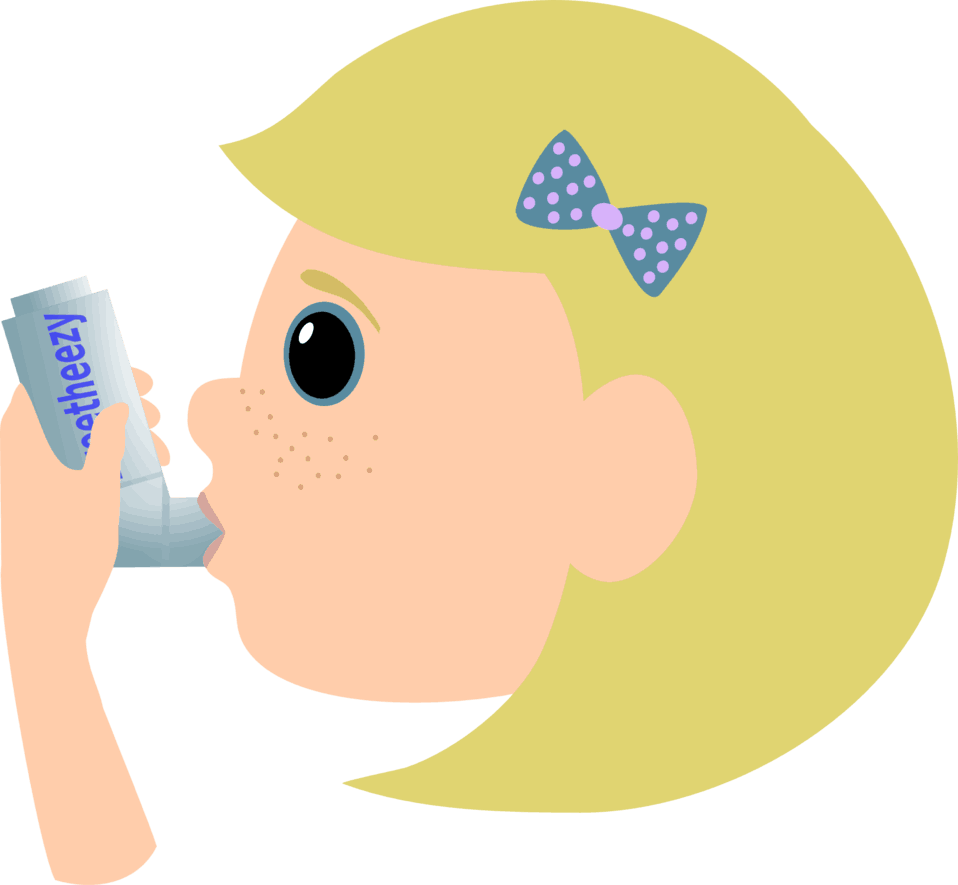
As most asthma sufferers will tell you, some perfumes or overpowering scents can trigger an asthma attack in any situation.
Rather than using scented or perfumed cat litter, opt for unscented or natural cat litter.
Consider using silica or clay-based litter instead of clumping. When your cat uses their litter box, they’ll be less likely to create a dust storm that can be an irritant.
Whether or not you can clean the box will depend on your own type of asthma, triggers, and severity. Consult with your doctor about this. You may also ask about using a mouth mask while cleaning the box, to avoid any asthma flare-ups due to triggers.
Also, see the dust-free (or almost dust-free) litter formulas suggested in the next section.
Is There A Link Between Kitty Litter And Lung Cancer?
An often-heard rumor is kitty litter can cause lung cancer, in both humans and cats. We can understand if you're alarmed, it's a frightening report to hear.
While there is a concern with cat litter due to silica, there isn't enough scientific evidence to prove whether or not this tale is true. Some formulas of litter are more dust-free than others. Look for those as you shop if you're worried about this.
Here are a few examples:
Arm & Hammer's zero dust formula
CatSpot coconut-based dust free litter
Can I Catch A Disease From My Cat’s Litter Box?
Going beyond the chemical composition of cat litter and its effect on your help - what about the other things lurking in the litter box? We're talking about the products of pee and poo, including parasites and bacteria.
The short answer is that unless you are immunocompromised, there is a very low probability that you’ll catch a disease from your cat’s litter box. And keep in mind that babies, pregnant women, and seniors are always immunocompromised to some degree.
That's why we're covering these topics here as well. You should be aware of them but they're not a real threat to healthy young adult individuals.
A few common concerns when cleaning cat litter are exposure to ammonia (cat urine) and exposure to cat feces which could result in e. Coli, salmonella, and toxoplasmosis.
1. Ammonia
When it comes to ammonia, there is a small chance of developing breathing difficulties due to cat pee. However, the concentration of ammonia in cat urine is low, it's rare for this to be a health problem.
In fact, unless there is a case of neglect or failure to provide maintenance to a cat's litter box regularly, you'll likely find the smell of cat pee more bothersome as opposed to experiencing health issues from the ammonia.
Read more on how to reduce the smell from the litter box - the right way.
2. E. Coli & Salmonella
Escherichia coli, or as it’s more commonly known, E. Coli, is a bacterium not often associated with litter boxes but it can be quickly picked up by your feline friend via raw meat and then transferred by their excrement to their litter box.
By the same route, you can also get salmonella and a few other diseases that infect people through the fecal-oral route.
This is yet another critical reason why it's essential to clean your cat litter box regularly. We know, we know, we’re getting repetitive, but you have to admit that we do have a point.
The longer the feces stay in the box, the more time you're giving bacteria to develop. Getting rid of it sooner, rather than later is therefore wise.
Also, this is exactly why the AVMA (American Veterinary Medical Association) officially discourages owners from feeding dogs and cats raw meat. It's the best way to keep harmful bacteria away from your cat - and yourself.
Using good hygiene such as washing your hands after cleaning a litter box will help keep both of you healthy.
3. Toxoplasmosis
Toxoplasma gondii is a microscopic parasite that uses cats as a host during its life cycle. Cats become infected by eating raw meat (as a diet or by preying on a small animal. The parasite multiplies in the cat's body and then sheds its eggs (known as oocysts) in cat poop.
Generally, both cats and humans will not always show any symptoms of toxoplasmosis, particularly if neither has a compromised immune system.
If a human does show any signs of disease, it's going to look like a common cold. However, for a person with a weakened immune system or a pregnant woman, this disease can be harmful to their health.
Don’t let this scare you away from pet ownership, there are some simple precautions you can implement to ensure both you and your pet are healthy including regular vet visits for your pet to ensure they're healthy.
If you think you may have contracted this disease, it's important to contact your doctor for professional medical advice.
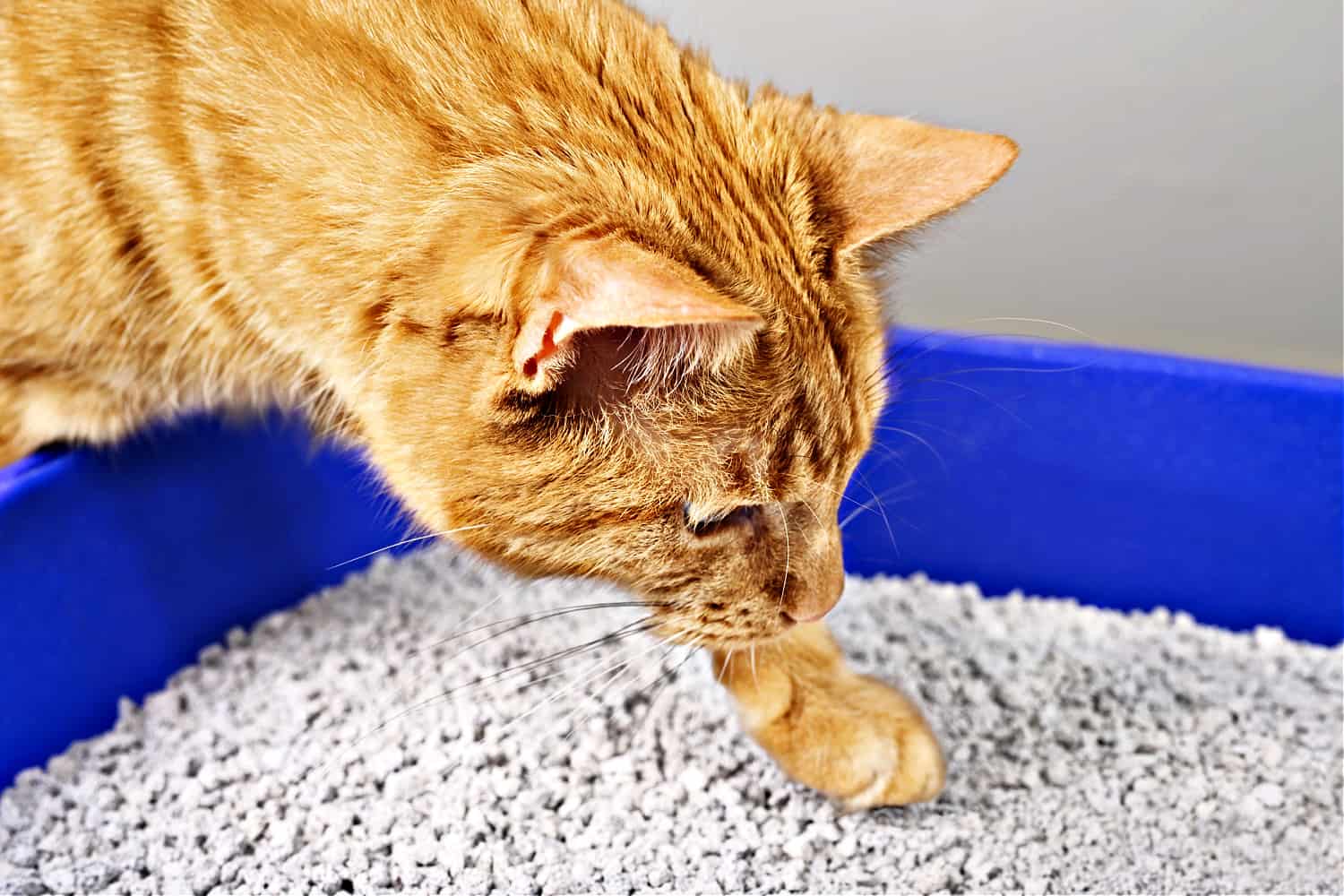
Should Pregnant Women Avoid A Cat Litter Box?
If can reassign the task of cleaning a litter box until the baby arrives, you should! And if someone wants to take over the responsibility indefinitely, that's great too!
But if you are the sole caretaker of your cat and cannot find anyone else to clean your cat’s litter box that doesn't mean you need to rehome your pet.
Taking precautions, such as wearing a mouth mask and protective gloves, will reduce any risk of exposure to any illness a cat might carry, such as the disease toxoplasmosis, caused by the parasite Toxoplasma gondii (discussed above).
The probability of contracting this disease during pregnancy is quite low. It would take all of the following conditions to be met -
- The cat needs to actively shed toxoplasma oocysts (which usually only happens for a few weeks after the onset of disease in the cat.
- The stools need to remain in the litter box for 48 hours for the oocysts to reach the infectious stage.
- The pregnant woman then needs to have never been exposed to Toxoplasma before.
- And then she needs to literally ingest some of the cat poo (albeit, a tiny amount would do).
Actually, it’s far more likely to contract toxoplasmosis through the improper handling of raw meat or ingestion of undercooked meat. Still, just to be on the safe side, it's best to let someone else handle the litter box while you're pregnant - or at least use gloves.
A Healthy Litter Box Is A Clean Litter Box
It’s safe to say that a dirty litter box can be a harmful litter box. Infrequently cleaning a litter box can lead to bacteria and germs will build up, breeding a host of problems.
If you’re having trouble staying on track and cleaning the litter box every day (yes, daily is best), a few tips you can try are:
Keep An Eye On Your Litter Box By Moving It To An Area You Frequent
You might think it’s a good idea to keep your cat’s litter box in a room you don’t often use. But, as the saying goes, out of sight, out of mind. Tucking away your cat's litter box where you don’t often see it might make you forget to clean it.
Many owners choose to keep the litter box in the bathroom, laundry room, or a room they visit daily.
Read more: Where to place the litter box - a room by room guide
Create A Routine
If you find yourself regularly forgetting to clean your cat's litter box, try making a schedule for yourself.
You can set a smartphone notification for certain times of day to remind you to clean your cat's litter box and notify you of when it's time to empty and wash the litter box.
Find more tips here: How to best clean your litter box
Invest In A Self-Cleaning Litter Box
There are many automatic, self-cleaning litter boxes available on the market today. Although you will still need to step in to empty the litter box receptacle.
Even though self-cleaning litter boxes can help keep up with regular maintenance, it's essential to do a weekly deep clean. Depending on cost and accessibility to a power source, this may be the most convenient option, for you and your cat.
Read more about automated litter boxes here.
The best way to avoid health issues resulting from a litter box is to stay on top of maintenance and keep your feline friends’ bathrooms clean.
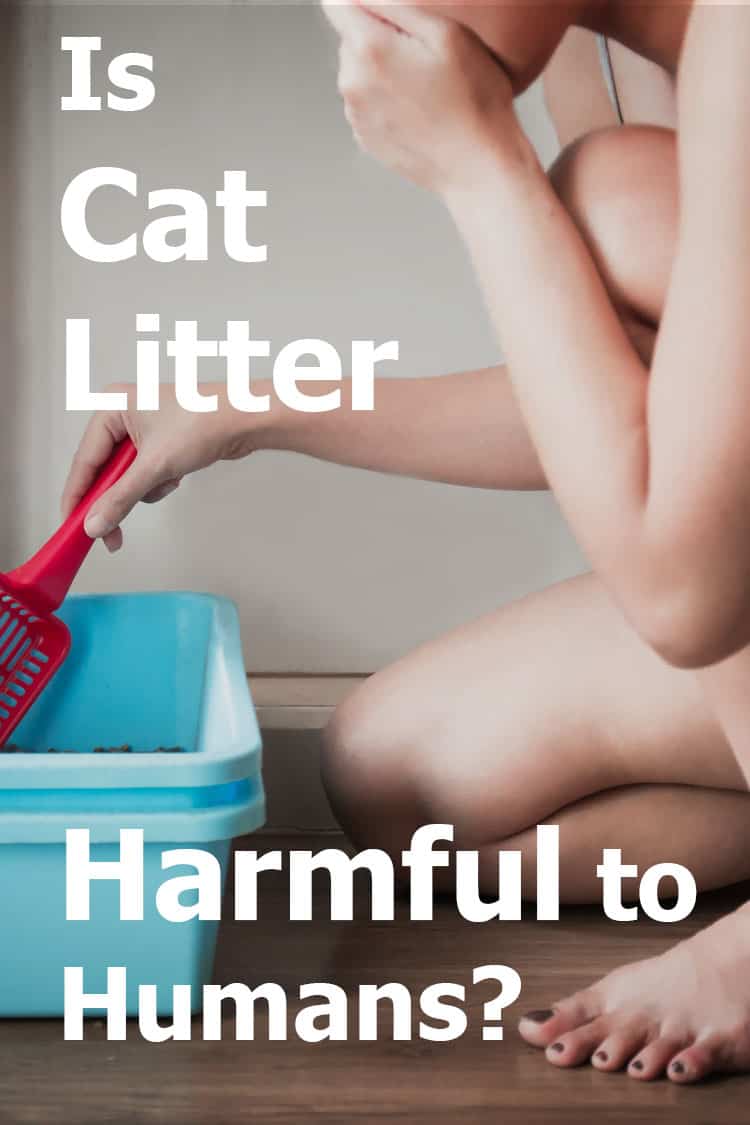



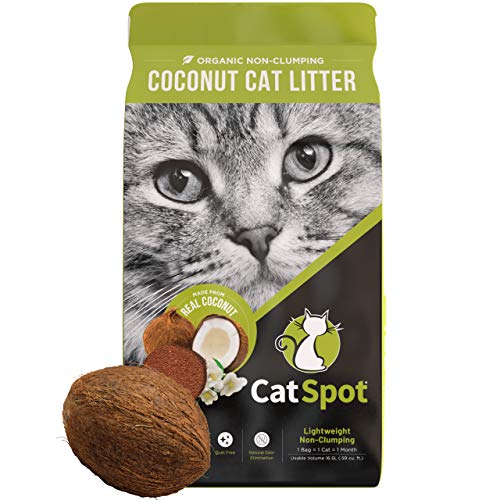
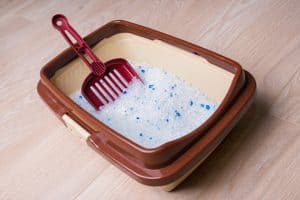
![cat examines kitty litter box with eco-friendly silicate litter - Can You Wash and Reuse Crystal Cat Litter? [Answered]](https://litter-boxes.com/wp-content/uploads/2023/08/cat-examines-kitty-litter-box-with-eco-friendly-silicate-litter-300x200.jpg)
